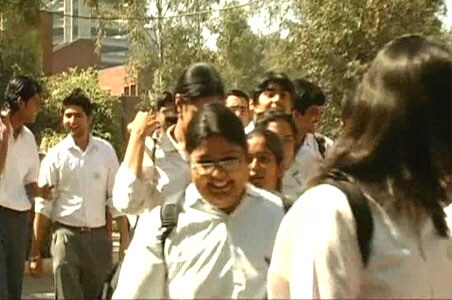
The landmark Right to Education Bill passed by the Rajya Sabha on July 20, now awaits Lok Sabha approval.
Human Resource Development Minister Kapil Sibal will table the Bill in Parliament.
One of the key components of the bill is to provide free and compulsory education to all children between six and 14 years of age.
Besides, disability should not be a hindrance to education, and those who have missed school will be put in appropriate classes according to their age.
Apart from these, 25 per cent seats in private schools will be given free.
Educationists have welcomed the bill, but with some caution. They point out several lacunae, also with the school authorities criticising the government for not engaging them in a dialogue, calls to amend the education Bill are only getting louder.
In the works since 2003, the historic Bill is far from being widely accepted. It may have crossed the Rajya Sabha hurdle, but private schools are becoming increasingly vocal in their opposition.
School authorities are wondering why no compulsory education below six years of age?
"Why are children in the three years to five years category not mentioned? How are the children going to cope in this environment suddenly? We do not want a high drop out rate," said Jyoti Bose, principal, Springdales, Delhi.
"The bill will help the education system. It should not only be restricted to children between six to 14, but go beyond it," said Avnita Bir, principal, R N Podar school.
The government is ready to make up for the fee shortfall caused by reservation. But schools say it may not be enough.
"Schools have no other source of income. So we will be forced to raise the fees by 40 per cent," said Sumer Singh, principal, Daley College.
With the school authorities criticising the government for not engaging them in a dialogue, calls to amend the education Bill are only getting louder.
Track Latest News Live on NDTV.com and get news updates from India and around the world

